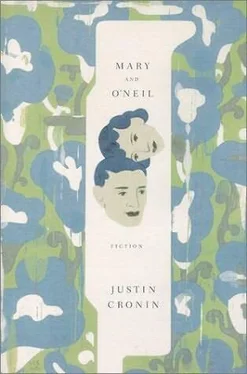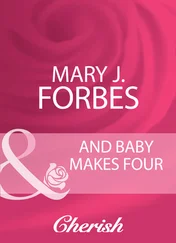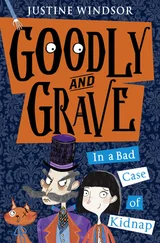It was true. No one had.
He traveled north one last time, the week before the summer ended and school began. He took the car, as he had done the first time, all those months ago. The weather was clear, the sky a flawless blue; he treated himself and did not cut east from Albany into Vermont, the quickest route, but instead drove north along the lake, and took a ferry across it. The boat ride from New York to Vermont was forty minutes; he passed it lying on the hood of his car, his eyes closed, the sun spilling on his face, his ears and body tuned to the throb of the engine and the slap of water against the steel plating of the ferry’s hull.
A moving van was parked in the driveway, and two men in jumpsuits were carting out the contents of the house: furniture, appliances, clothing, toys. A thousand crates of books. Jack had set aside some things of Kay’s for O’Neil to take with him-a single cardboard box, containing mostly photographs. In the box O’Neil also found her Phi Beta Kappa key, the engraved silver hairbrush she had had since she was a baby, and her senior thesis from college, a slender, yellowed volume entitled “Wayward Women: The Poems of Sylvia Plath and Anne Sexton.” The last pleased him the most. Reading it, he knew, he would hear her voice.
“It’s not a lot, I know,” Jack apologized. He was wearing shorts and a T-shirt circled with sweat; he had been packing for days. “Really, if there’s anything else you want…”
“It’s perfect,” O’Neil said. All his anger had left him, long ago. “Thank you.”
The next day he took the boys to Friendly’s for lunch. The house was empty, a silent, ghostly hall. His nephews would spend another day in town, and on Monday Jack would put them on a plane to St. Louis. Then he would drive west to meet them, and together they would begin their new life.
“What’s St. Louis like?” Simon wanted to know.
“Let’s see.” O’Neil thought a moment. “Well, it’s a lot like here. It’s warmer, that’s one difference. It almost never snows.”
“No snow!” the little boy said, shocked.
“Well, it can snow,” O’Neil explained. “I’m not saying it never snows. It just doesn’t, most of the time. And plus, your grandparents are there. And all your uncles and aunts and cousins.”
“Will you move there with us?” Noah asked.
“No, but I can come to visit. Or you can come to visit me.”
“Where’s Pennsylvania?” the littlest boy asked. He pronounced it deliberately, like a new word he had just learned: Pen-cil-vay-nee-a.
“Well, it’s not so far.”
“Mom’s in heaven,” Noah stated. He was doodling with crayons on his place mat, and did not look up as he spoke.
“That’s right,” O’Neil said. “That’s where she is.”
“With her mommy and daddy. Our other grandparents.”
“Yes, they’re all there together.”
“Cool it, Noah,” Sam said. “Let him eat.” He looked at his uncle. “I’m sorry, O’Neil.”
“No, it’s all right,” O’Neil said. “We can talk about it. I don’t mind at all.”
“Did they die too?” Simon asked.
“Yes, they did, a long time ago. But that doesn’t matter. You see, in heaven there’s no yesterday, or today, or tomorrow. It’s all the same in heaven. So, you’re there already, too, with your mom. Think about it. How could it be heaven if she didn’t have you there?”
Noah frowned. “But I’m alive,” he said.
“Yes, you are. And you’ll live many, many years. Your whole life. But when you get there, it will be like only a day has passed. Not even a day. No time at all. That’s heaven.”
Noah eyed him skeptically. “How do you know?”
O’Neil looked at him, then at Sam. If they had been alone, he would have thrown his arms around the boy and told him how sorry he was, how much he loved him.
“Your mother told me,” O’Neil said.
It happened in September. O’Neil had been back teaching four weeks. He had just turned forty; later, he would wonder if this fact had something to do with what occurred. As the day approached, Mary asked him if he wanted her to plan a party, and though he said no, he knew she would do something. That night, a Friday, he came home to a darkened house. As he opened the door he assumed he would be stepping into the party he had refused, but found only Mary and the girls, coloring with crayons on construction paper at the kitchen table. Happy birthday, Daddy, the girls cried, and hugged him tightly. They showed him what they had made: a picture of the two of them, enclosed in a heart. Go shower, Mary said, as he was admiring it. We have a dinner reservation at seven; Mrs. Carlisle will be here any minute. They dressed and drove to the restaurant, and only when they were seated at their table did O’Neil notice the balloons and the gifts and lift his face to find all his friends there, laughing at him, the oblivious O’Neil.
Forty: how unlikely it seemed. As a boy O’Neil had computed his age in the year 2000-an impossibly distant future-and discovered, to his astonishment, that he would be forty years old. Under the eaves of his bedroom he had wondered, What would the world be like then? Would we be living in outer space, in bubbles under the sea, soaring to work in helicopters? Would he even be able to enjoy these wondrous things, being so old? Yet here he was, the same person, living in the same world, none of it truly changed. He drove a car to work, lived in a house twice as old as he was, looked at the stars when he cared to, feeling only the vague appreciation one gave to anything beautiful and useless and far away. Every day he went to school, just as he had as a boy. Amazing.
Was your birthday all right? Mary asked, driving home from the party. Was it what you wanted? Dozens of old friends had come, some he hadn’t seen for years. His college roommate, Stephen, had even driven down from Boston. O’Neil told her it was; it was perfect, he said. You know, in this light, you don’t look forty, Mary said, and squeezed his hand promisingly. My gift to you comes later, handsome man.
She meant she was pregnant. She did not tell him that night, but he thought she would soon; that was how it had been the first two times, Mary keeping the news to herself until she was sure, living alone with her secret like the answer to a question she wasn’t sure anyone had posed. Well, he thought as sleep came to him, perhaps it wasn’t so. She would tell him, or not. She was, or she wasn’t. He would wait to hear. So, in the meantime, his belief-for that’s what it was-would be a secret too.
Monday he drove to work, his mind buzzing with happiness. Everything he saw-the morning sunlight rebounding in the turning leaves, the bright yellow school buses and dutiful crossing guards, a woman putting on lipstick in her rearview mirror at a stop sign-filled him with a strange delight. It flowed through him like a benign electric current. So much joy! So much to look forward to! The awful months were over; he had stepped back into life. In the faculty workroom the morning talk among his colleagues was still of summer pleasures, of gardens planted and trips taken, of books read and movies seen, of mountains scaled and rivers kayaked and long, unhurried days doing nothing at all. They were teachers, with more time than money; their enjoyments, modest to a fault, seemed to O’Neil to possess the same unassuming purity of green grass, summer light, and flowers in a pail, and he listened to their stories with a feeling like kinship. This life they described was, after all, the same one he had chosen.
“O’Neil, what’s gotten into you?” someone asked-the science teacher who, so long ago, had explained the leaves to him. “Nine months to go,” Paul said. “What’s there to be so happy about? You’re grinning like an ape.”
Читать дальше












